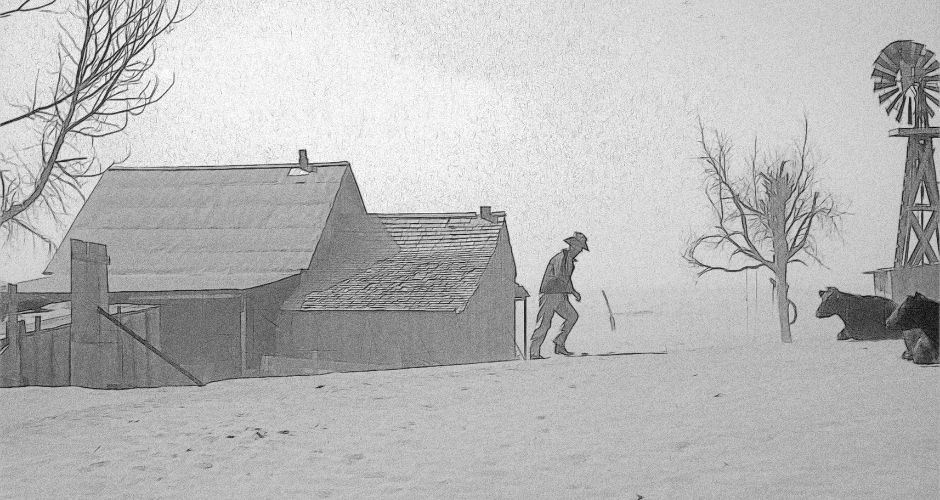Drought, Dust, Depression, and War No. 11

Dorothea Lange1, 2
One of the weekends that I find I think of often…, is a weekend in April of 1934 or ‘5, I don’t remember which now, when I went down to Imperial Valley, California, to photograph the harvesting of one of the crops; as I remember now, it was the early peas or the early carrots. The assignment was the beginning of the migration, of the migratory workers as they start there in the early part of the season and then as they moved op. I was going to follow it through. The story of migratory labor in California is an old story. I had completed what I was going to do, and I started on the way home, driving up the main highway, which was right through the length of the state, and it was (a) very rainy afternoon. I stopped at a gas station to get some gas, and there was a car full of people, a family there at that gas station. I waited while they were getting there gas, and they looked very woebegone to me. They were American whites. I looked at the license plate on the car, and it was Oklahoma. I got out of the car, and I approached them and asked something about which way they were going, were they looking for work, I’ve forgotten what the question was at the time, And they said, “We’ve been blown out.” I questioned what they meant, and then they old me about the dust storm. They were the first arrivals that I saw. There were the people who got up that day quick and left. They saw they had no crop back there. They had to get out. All of that day, driving for the next maybe two hundred miles—no, three or four hundred miles—I saw these people. And I couldn’t wait. I photographed it. I had those first ones. That was the beginning of the first day of the landslide that cut this continent and it’s still going on. Don’t mean that people haven’t migrated before, but this shaking off of people from their own roots started with those big storms and it was like a movement of the earth, you see, and that rainy afternoon I remember, because I made the discovery. It was up to that time unobserved. There are books and books and books on that subject now.
- Doud, Richard K. “Oral History Interview with Dorothea Lange, 1964 May 22.” Archives of American Art, Smithsonian Institution. Accessed August 25, 2021. https://www.aaa.si.edu/…dorothea-lange…transcript.
- Dorothea Lange (1895-1965) was a photographer in California. Lange worked on FSA photograph project during the Depression.

